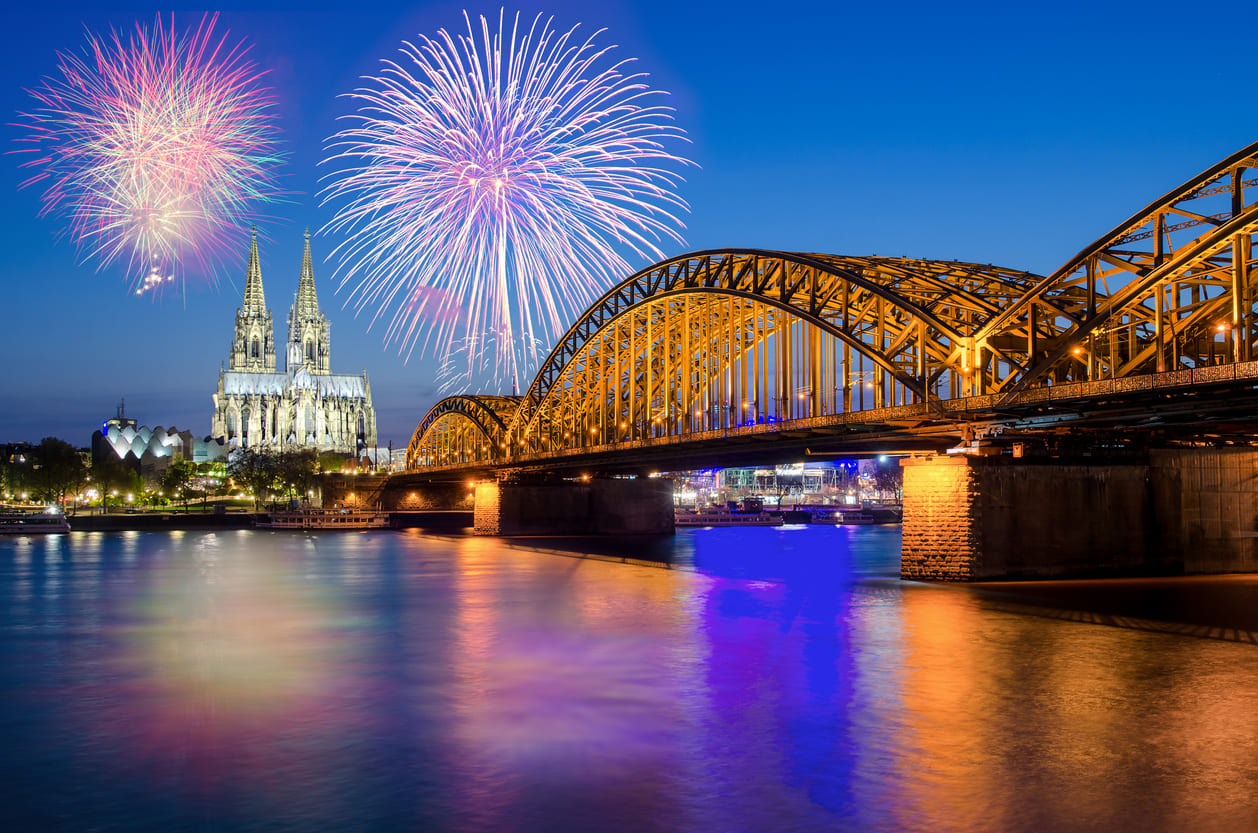Dates of New Year's Eve in Germany
| 2026 | Dec 31 |
| 2025 | Dec 31 |
| 2024 | Dec 31 |
Related Holiday in Germany
Germany Holiday Calendars
New Year's Eve, or Silvester in Germany, is celebrated on December 31 with lively parties, fireworks, and gatherings with friends and family. It is a time to bid farewell to the old year and welcome the new with joy and optimism.
New Year's Eve: A Public Holiday?
New Year's Eve is a bank holiday in Germany. While it is not an official public holiday, banks and many businesses typically close early on December 31 to allow employees time to prepare for New Year's Eve celebrations.

New Year's Eve
New Year's Eve, known as Silvester in Germany, has its roots in ancient traditions and the Roman calendar. The day is named after Pope Sylvester I, who passed away on December 31, 335 AD, and later canonized. The name became associated with New Year's Eve when the Gregorian calendar was adopted, and the last day of the year gained significance as a time to reflect on the past and prepare for the year ahead. Many customs linked to the day, such as fireworks and feasting, can be traced back to pagan practices aimed at driving away evil spirits and welcoming good fortune for the new year.
New Year's Eve Celebration in Germany
New Year's Eve is a festive and lively occasion celebrated with family and friends in modern Germany. As the clock approaches midnight, people gather for parties or quiet dinners, often enjoying traditional foods like raclette or fondue. Fireworks play a central role in the celebration and are set off at midnight to mark the transition into the new year. Cities and towns light up with dazzling displays, and in smaller communities, individuals often create their own fireworks shows.
Another tradition is watching the short British comedy sketch Dinner for One, which has become a staple of German New Year's Eve television. Toasting with champagne or sparkling wine at midnight is also customary, often accompanied by well-wishes for health, happiness, and success in the coming year. In some households, Bleigießen, or lead-pouring, is used to predict the future by interpreting shapes formed from molten lead.
The importance of New Year's Eve lies in its role as a time of transition, reflection, and hope. It allows people to celebrate the end of one year and look forward to a fresh start, often making resolutions or setting goals for personal growth. The evening's festivities bring people together, fostering a sense of community and optimism for the year ahead. Silvester is not just about parties and fireworks; it's a moment to cherish memories, express gratitude, and embrace the possibilities of a new beginning.
New Year's Eve Observances
| Year | Date | Weekday | Name | Holiday Type |
|---|---|---|---|---|
| 2024 | Dec 31 | Tue | New Year's Eve | Bank Holiday |
| 2025 | Dec 31 | Wed | New Year's Eve | Bank Holiday |
| 2026 | Dec 31 | Thu | New Year's Eve | Bank Holiday |
| 2027 | Dec 31 | Fri | New Year's Eve | Bank Holiday |
| 2028 | Dec 31 | Sun | New Year's Eve | Bank Holiday |



